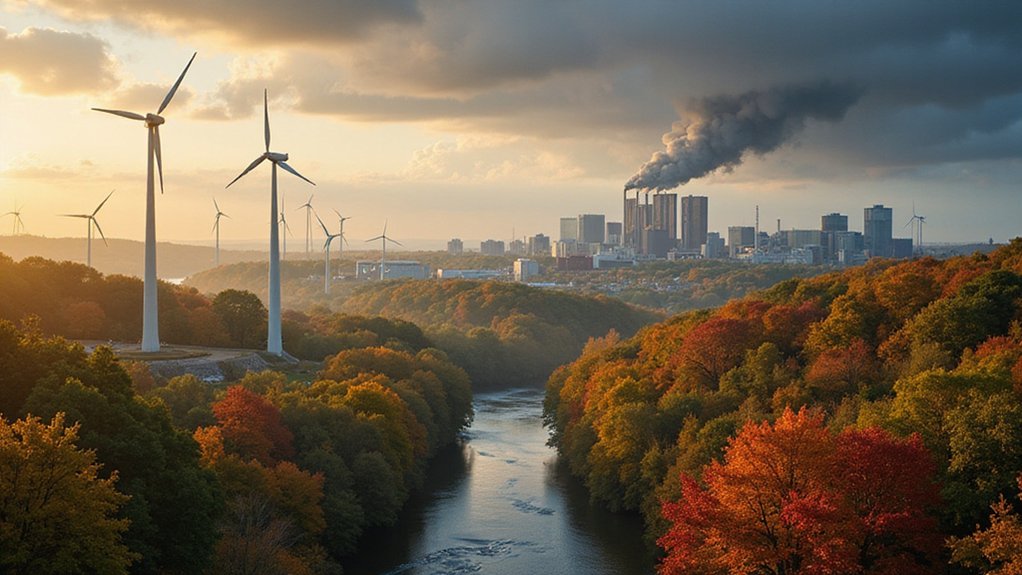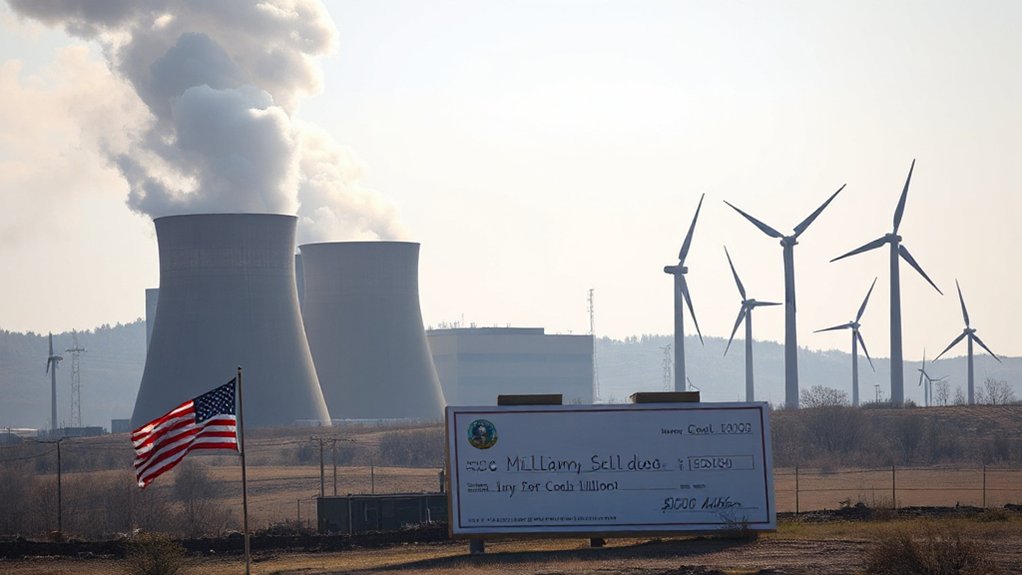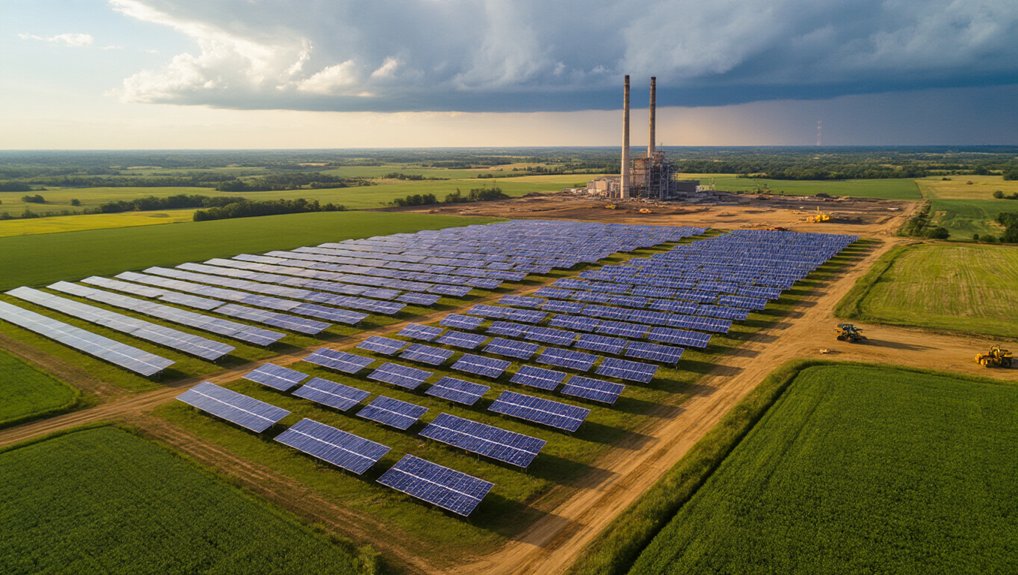Connecticut’s lawmakers are locked in a heated debate over House Bill 5004. The legislation aims to eliminate all carbon emissions by 2050. Democrats have rallied 64 co-sponsors behind the initiative, calling it essential for the state’s future. Republicans argue it’s financially unrealistic and question the science behind climate targets. The bill would phase out natural gas and push for clean energy solutions. The outcome could reshape Connecticut’s environmental policies for decades.
Connecticut lawmakers are pushing forward with their most ambitious climate initiative yet. House Bill 5004, which passed the House with a 94-56 vote in early May 2025, aims to strengthen the state’s existing carbon reduction goals and set Connecticut on a path to net zero emissions by 2050.
Connecticut’s lawmakers advance groundbreaking climate legislation with House Bill 5004, setting an ambitious path toward net zero emissions by 2050.
The legislation comes at a critical time for Connecticut’s climate efforts. Since establishing emissions standards in 2008, the state has only met its goals once – during 2020 when vehicle traffic dropped notably. Current law requires an 80% reduction in greenhouse gas emissions between 2001 and 2050, with a plan to obtain all power from carbon-free sources by 2040.
HB 5004 would create a new “Clean Economy Council” tasked with developing strategies to meet these ambitious targets. The council will work to balance economic considerations with advancing clean energy initiatives throughout the state. The bill includes incentives for solar canopies, energy-efficient systems, and heat pumps, while providing support for green jobs and sustainability-focused businesses.
Representative Christine Palm introduced the bill, which gained 64 co-sponsors before passing after 4.5 hours of debate. This follows House approval of HB 5232, aimed at increasing Connecticut’s solar capacity.
The state has already shown commitment to zero-emission vehicles. In July 2020, Connecticut joined 14 other states and DC in signing an agreement targeting 100% zero-emission sales for medium and heavy-duty vehicles by 2050, with a 30% interim goal by 2030.
However, Republican opposition has raised concerns about implementation. Representative Patrick Callahan questioned how the state could achieve zero-carbon goals cost-effectively if natural gas is eliminated. Other Republicans have disputed the science behind global temperature increase predictions.
A key component of the bill is a study on the future of natural gas in Connecticut. Climate activists hope this will provide a pathway to eliminate fossil fuels, but shifting away from natural gas presents challenges, as it currently serves as an electricity source and heating fuel for many Connecticut homes. Connecticut’s efforts align with global trends showing renewable energy market growth at an annual rate of 17.23% worldwide.
Having passed the House, the bill now moves to the Senate where similar legislation stalled last year, though Democratic leadership has committed to bringing it to a vote this session.
As the bill moves forward, debates continue about its practical implementation and cost implications for residents and businesses.
References
- https://www.renewableenergyworld.com/energy-business/policy-and-regulation/net-zero-by-2050-ct-lawmakers-try-again-on-climate-legislation/
- https://www.nbcconnecticut.com/news/local/lawmakers-consider-aiming-zero-carbon-connecticut-by-2050/3557292/
- https://portal.ct.gov/deep/air/mobile-sources/evconnecticut/evconnecticut—cts-ev-commitment
- https://carbon-pulse.com/393916/
- https://www.savethesound.org/2024/05/01/climate-bill-hb-5004-passes-the-connecticut-state-house/








